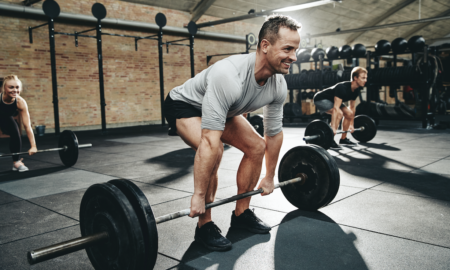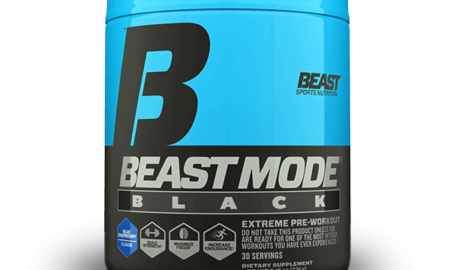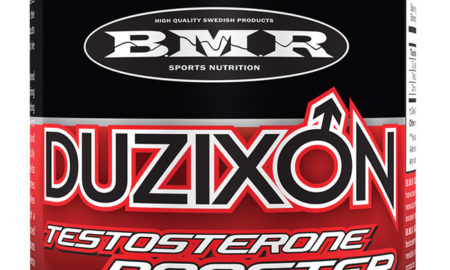You see the caution on countless Internet sites related to bodybuilding: Avoid eating soy products unless you want to lower your testosterone count. At first glance the dire warnings about soy are plausible. After all, the active components of soy products are isoflavones, primarily genistein and diadzein, which are classified as phytoestrogens because of their molecular similarity to estrogen. For years soy has been recommended to women. The logic is that since it has some weak estrogenic capabilities, it may interact with estrogen cell receptors, thereby displacing actual estrogen. With no interaction, estrogen is inert. Since the isoflavones are so weak, they block the effects of estrogen without exerting much activity themselves. One study suggests that soy isoflavones have about 1/10,000 the potency of “real” estrogen.
The ability of soy isoflavones to interfere with estrogen activity is thought to be the reason that Asian women, who eat more soy than Western women, have lower rates of breast and uterine cancers. Each gram of soy contains an average of 3.5 milligrams of isoflavones. Japanese adults eat an average of 25 to 50 milligrams of isoflavones daily. Asian men who eat greater amounts of soy foods also have lower rates of prostate cancer.
The suggested mechanism for the effect in men is related to an interference with testosterone activity in the prostate gland, but that assumes that having normal testosterone counts is a direct cause of prostate cancer, which is patently false.
On the other hand, the lower rate of prostate cancer suggests that perhaps there is something to the idea that soy lowers testosterone in men. Animal studies have been largely equivocal, with some showing a lowering of testosterone with soy intake and others showing either no effect or an increase in T levels.
A new study examined the true effect of soy on testosterone in men.1 It was a meta-analysis and looked at past studies related to testosterone and dietary soy in men, limiting its scope to research that met certain minimal scientific criteria. That left the authors with 15 placebo-controlled studies and 32 reports on 36 treatment groups. Among the items examined in those studies were total testosterone; free, or active, testosterone; and sex-hormone-binding globulin, a protein that ties up and transports testosterone in the blood.
The researchers found that soy protein or isoflavone intake had no significant effects on testosterone. Neither total nor free testosterone was negatively affected by dietary soy in any of the studies. Research that did show a lowering of T by soy had serious methodological flaws, rendering the findings useless. The authors of the meta-analysis did note one peculiarity, however, that may explain why soy has been linked to lower testosterone in men.
In turns out that individuals may metabolize soy isoflavones differently. In a 10-week study 38 subjects took about 110 milligrams of isoflavones a day. Circulating isoflavones varied from 30- to 1,500-fold, and measures of equol, a metabolite of the isoflavone daidzein, varied by 1,000-fold. On the other hand, only 25 to 35 percent of Western people have the intestinal bacteria necessary to produce equol from daidzein.
The significance of the above is that equol is more potent in estrogen activity than diadzein. Despite that, even in studies in which the isoflavone intake dwarfed the amount of dietary soy typical among Asian populations, soy had no effect on testosterone. If soy does indeed protect against prostate cancer, it isn’t because of any interference with testosterone activity.
Another study, published two years ago, involved seven healthy young men who ate two pounds of soybeans a day for one week.2 They showed no changes in estrogen or total and free testosterone. They did, however, show an increase in brain activity, specifically an improvement in spatial cognitive performance. What’s interesting about that is that men are considered superior to women in that aspect of brain activity, and the often suggested reason is men’s higher testosterone levels.
Meanwhile, however, genistein, the primary isoflavone in soy, does affect other hormones in the body. For example, it lowers blood insulin and suppresses the fat-building properties of insulin in fat cells. Mouse studies demonstrate a lowering of bodyfat when the rodents are given genistein for only 12 days. Genistein appears to alter gene expression of lipoprotein lipase, an enzyme that transports fat into fat cells, in a way that reduces fat uptake. It seems to be particularly potent in reducing fat stored in muscle. That’s significant because excess muscle fat is related to insulin resistance and diabetes, although it acts differently in those who exercise or are physically active. Having large amounts of genistein actually causes fat cells to self-destruct, but that doesn’t happen through diet alone. On the other hand, genistein also boosts the gene coding for the enzyme that works with carnitine in transporting fat into the mitochondria, where fat is oxidized. Genistein further aids fat loss by increasing the genetic production of PPAR-a, which controls fat metabolism. Enhancing its activity also boosts fat oxidation.
Despite evidence of soy’s favorable effect on fat metabolism, another common warning is that it interferes with thyroid activity. Since the thyroid gland controls the resting metabolic rate, interfering with its activity could lead to bodyfat gain. Genistein does interfere with thyroid peroxidase, an enzyme that is required to produce thyroid hormone. If you have a deficiency of the trace mineral iodine, soy will interfere with thyroid synthesis, but then again, so will the iodine deficiency, since iodine makes up two-thirds of thyroid hormone. Still, numerous studies have shown that in humans, soy has no negative effect on thyroid hormones.
One hormone that soy does reduce is cortisol. Produced in the cortex of the adrenal glands, which lie just above the kidneys, cortisol is the body’s primary catabolic hormone. While essential to life, it’s also linked to muscle loss, brain cell loss and excess bodyfat, particularly in the midsection. If anything, soy’s moderate effect on cortisol would be good for those engaged in bodybuilding. A study just published also found that soy appears to aid respiration, a not unimportant consideration for those engaged in the heavy breathing of exercise—not to mention other activities that often feature heavy breathing.
So should we all start eating copious quantities of soy-based foods? In fact, while soy is often labeled an inferior protein source for bodybuilders, a host of studies that compared it to whey and casein showed little difference between them with regard to protein synthesis. On the other hand, soy is a fast-acting protein, and several studies show that it tends to boost the synthesis of proteins in the gut more than in muscle. Other studies show that the amino acids in soy tend to be oxidized more rapidly in the liver, leaving less for muscle protein synthesis. From that vantage point, soy isn’t a junk protein, but it is a bit inferior to milk proteins for purposes of muscle building.
One recent study, however, found that both whey and soy proved superior to casein in aiding muscle protein synthesis in young men after resistance exercise and at rest. That isn’t surprising, since whey and soy rapidly release amino acids. The more rapid the amino acid release, the greater the muscle protein synthesis. Casein slowly releases amino acids over a seven-hour period, making it better for anticatabolic purposes than whey and soy.
The one thing that you can take to the bank—no, forget the banks until they start providing credit, as the stimulus package mandated—is that eating soy will have no effect on either testosterone or estrogen. The one possible exception to that would be if you’re one of those rare types who produce equol from eating soy foods. Even so, you’d have to chow down a truckload of soy before you’d experience any noticeable estrogen effects.
Steroids and Genes
Nandrolone, more familiarly known by its trade names of Durabolin and Deca-Durabolin, is considered by many to be one of the milder anabolic steroids in terms of side effects. Only 20 percent of the drug can convert into estrogen, which means that its estrogenic side effects are not likely unless it’s used in exceptionally large doses or for unusually long periods. If, however, nandrolone is taken in conjunction with other steroids known to lower sex-hormone-binding globulin in the blood, estrogen could be bumped off its SHBG carrier, thus making it readily available. Other reports suggest that nandrolone has an affinity for progesterone cell receptors. That could lead to loss of libido, or sex drive—even episodic impotence and perhaps gynecomastia. Unlike testosterone, nandrolone isn’t capable of being converted into dihydrotestosterone, or DHT. Instead, it’s converted into a relatively inert metabolite. That means no worries about such side effects as male-pattern baldness, acne and prostate problems. Side effects like that, however, are rarely reported by athletes and bodybuilders who use the drug. A more pertinent problem is that Deca is one of the most readily detected drugs in standard drug-testing procedures. Its metabolites can be detected for as long as one year after its use has ceased.
The truth is that while nandrolone is milder than many other anabolic steroids, the dictum, “Only the dose determines the poison” still applies. A drug without possible side effects is a drug that doesn’t work. A recent study examined the effects of providing a dose of nandrolone—comparable to what a bodybuilder would use—on 37 genes in the pituitary gland, testes, adrenals, fat, kidneys and liver of rats.3 The rats were given Deca-Durabolin for 14 days.
The results: Profound reductions in the levels of corticosterone (the rat version of cortisol), insulin and adiponectin. The last-named is a beneficial adipokine secreted by fat cells. While the majority of adipokines are inflammatory and injurious to long-term health, adiponectin is one of the good guys. High counts of it are associated with lowered insulin resistance, decreased incidence of diabetes and increased fat oxidation.
The rats experienced a downregulation of beta-3 adrenal receptors, which are thermogenic and found more often in brown adipose tissue. Deca likely lowered the receptors because of lowered bodyfat induced by the drug. More problematic is the decreased adiponectin. Any form of testosterone lowers adiponectin, so that’s no real surprise. The authors suggest that this could partially explain the connection between high-dose steroid use and increased risk of cardiovascular disease.
The interference with corticosterone resulted from the downregulation of two adrenal enzymes; however, it also increased the accumulation of mineralcorticoids produced in the adrenals, such as aldosterone and deoxycorticosterone. Aldosterone makes the body retain sodium while spurring the excretion of potassium, a metabolic scenario that adds up to high blood pressure.
In the pituitary gland, Deca seriously interfered with the expression of genes for luteinizing hormone, as well as four enzymes involved in testosterone synthesis. Again, no surprise. High-dose anabolic steroid use has long been known to send a negative feedback signal to the pituitary gland, which leads to a blunted production of testosterone.
In fact, none of these results are really surprising. Anabolic steroids modify genetic mechanisms. Using anabolic steroids enables people to exceed their naturally set genetic limitations. That’s easily proven when an athlete gets off steroids. In all cases the athlete’s body reverts to more normal proportions. For example, those with a tendency to be skinny will get thinner, while those who tend to add fat may lose the muscularity that steroids help add. Perhaps the most important lesson from the study is that anabolic steroids are potent drugs that affect many body systems at the genetic level, often adversely, especially if used injudiciously.
References
1 Hamilton-Reeves, J.M., et al. (2009). Clinical studies show no effects of soy protein or isoflavones on reproductive hormones in men: Results of a meta-analysis. Fertil Steril. In press.
2 Celec, P., et al. (2007). Increased one week soybean consumption affects spatial abilities but not sex hormone status in men. Int J Food Sci Nutr. 58:424-428.
3 Alsio, J., et al. (20009). Impact of nandrolone decanoate on gene expression in endocrine systems related to the adverse effects of anabolic androgenic steroids. Basic Clin Pharmacol Toxicol. In press.
Editor’s note: Jerry Brainum has been an exercise and nutrition researcher and journalist for more than 25 years. He’s worked with pro bodybuilders as well as many Olympic and professional athletes. To get his new e-book, Natural Anabolics—Nutrients, Compounds and Supplements That Can Accelerate Muscle Growth Without Drugs, visit www.JerryBrainum.com. IM




















You must be logged in to post a comment Login